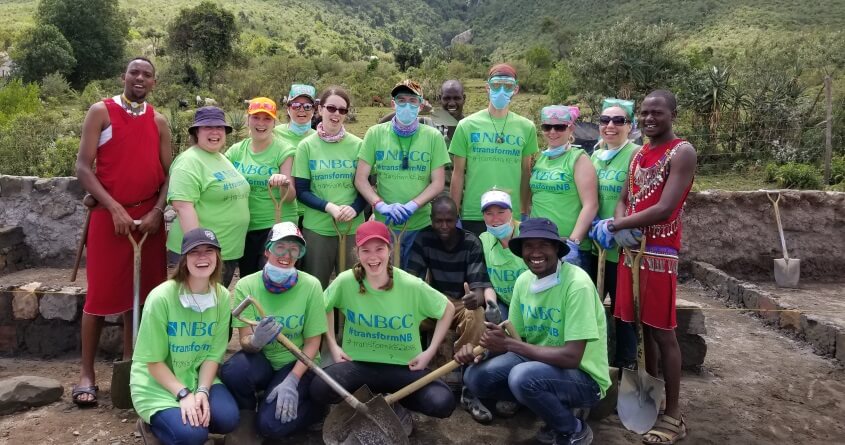FREDERICTON – NBCC students are using World Water Day to raise awareness of global water issues by kicking off “water walks” at their Campuses over the coming days. The events are being led by nine students who recently returned from the Maasai Mara region of Kenya as part of NBCC’s first international service trip through the Robertson Institute for Community Leadership.
“For most of us, access to water is as easy as turning on a tap but for 844 million people around the world, there is no access to clean water,” said Dominique Grant, NBCC Student Union President. “By hosting the water walks we wanted to create an experience that would highlight global water issues for our fellow students.”
While in Kenya, the students participated in “water walks,” carrying 50-pound jerry cans on their backs for three kilometres, the kind of trek made by millions of women and children multiple times a day, every day. They’ll be recreating the experience on Campuses to raise awareness among their peers.
“Lack of access to water has implications beyond health and wellbeing – it’s also a barrier to education and economic opportunity” explained Kaylie Broome, Vice-President of the Local Campus Union at NBCC Saint John Campus. “Globally, women and children spend 258 million hours every day collecting water. Those are precious hours that are not spent working or attending school.”
“Carrying the water cans on your back not only reminds you of the physical weight carried by these women and children but also the weight of lost potential and lost opportunity. We hope this experience will make people think about their personal water use as well as how they can contribute to global efforts to increase access to water.”
Fast facts about global water issues
- 844 million people — 1 in 9 — lack access to water.
- 2.3 billion people — 1 in 3 — lack access to a toilet – globally more people have a mobile phone than a toilet.
- Every 90 seconds a child dies from a water-related disease.
- Water, sanitation and hygiene-related disease kills nearly 1 million people each year.
- Women and girls spend up to 6 hours every day collecting water.
- Globally, 1/3 of all schools lack access to basic water and sanitation.
- Involving women can make water projects 6 to 7 times more effective
Source: water.org
-30-
Media contacts:
Heather Allaby
Director of Communications and Stakeholder Engagement
Heather.allaby@nbcc.ca | 506.444.3320
